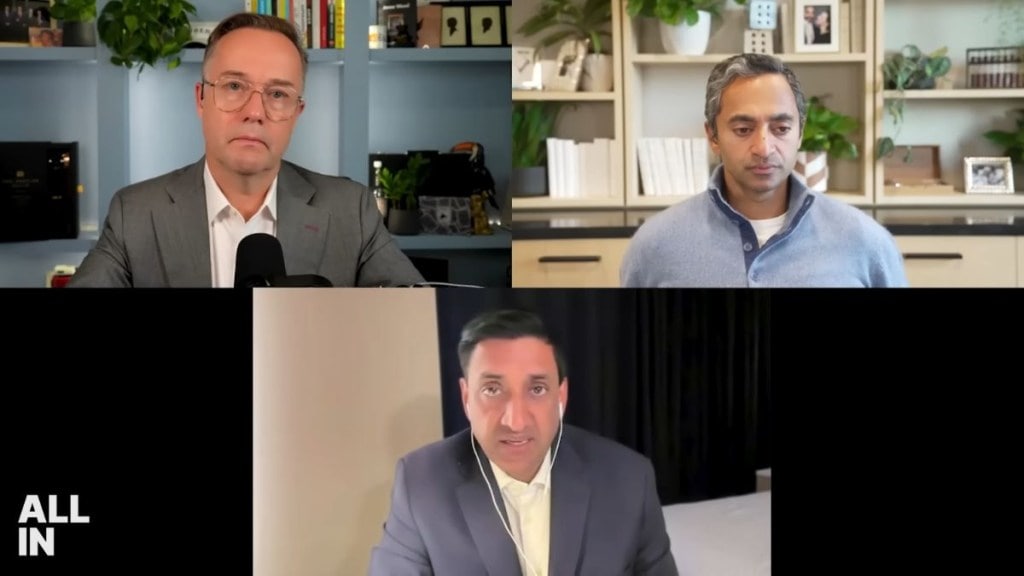Indian-origin US Congressman Rohit ‘Ro’ Khanna didn’t mince his words as he acknowledged that some of the mass IT outsourcing firms in the US were “abusing” the ‘specialty occupations’ H-1B visa. Despite desiring a big shakeup of the nonimmigrant work visa classification, he still didn’t agree with the way it was being reformed by US President Donald Trump.
Coming out a guest on the “All In” podcast’s new episode released on Thursday (US time), Khanna refused being on the side of the newly imposed $100,000 fee on future H-1B visa applications, effective September 21. “I don’t love the blanket 100,000 fee,” he told the business and technology podcast hosts Chamath Palihapitiya and Jason Calacanis. “I think that’s not the best way to reform it. Partly because it puts an unfair burden on startups, it actually may hurt them with talent.”
“But if you wanted to say, ‘Look, there’s going to be some prevailing wage standard and we need reforms,’ I’m open to that,” he admitted.
Indian-origin Ro Khanna agrees H-1B visa abuse is prevalent
Early into the interview, as Jason asked him whether the new strategy being employed was the right way to about correcting the “abuse.” The Democratic lawmaker outrightly put it out there: “There’s definitely abuse… it definitely needs to be corrected.” He further drew out the full picture linked to the visa supposed to bring in high-skilled talent. Firstly, he noted how some of the H-1B visa holders are being paid below market wages. On top of that, he reiterated the long-emphasised developments associated with the visa type in question.
Some of these H-1B lotteries have not even been going to “super-talented individuals” or jobs that “require a lot of skill,” he went on. At the same time, Khanna drew attention to his own bipartisan bill from the past, which was focussed on reforming the category “requiring paying a prevailing wage, making sure that categories were actually skilled.”
Chamath Palihapitiya eventually asked him if Trump was on the right path, to which he agreed with the POTUS’ basic goal of “reforming” the system. However, he doesn’t necessarily like the “specifics” of the way he’s going about bringing that reform. Ultimately, Palihapitiya, who is also a key figure in Silicon Valley, chimed in, noting that it had become extremely difficult to find “some of the best young minds” to work at their startups because the system had been “gamed.”
The Sri Lanka-born Social Capital founder-CEO also took note of how people who had simply “perfected” their applications had won the H-1Bs, not necessarily because they were actually highly talented individuals.
H-1Bs in China vs US
Ro Khanna then flipped the switch to China, saying, “One-third of the AI talent is in China, according to a lot of the reports. After having gone with a bipartisan delegation to the Asian country, the Democratic representative added, “I want some of those folks to come to the United States so we can stay ahead of AI. So there are legitimate uses of the H-1B program.”
Looking at a potential resolution to how an individuals isn’t exploited by lower wages in the H-1B program, Khanna said that staying on the visa program indefinitely wasn’t the right thing to do, as one should eventually start moving towards a green card, which he then called a “win-win.”
Also looking at the repercussions of limiting H-1B, the US rep said that most companies in the US have overseas headquarters. “They’re going to just offshore the jobs instead of bringing the jobs here,” the Indian-origin lawyer added.
Watch Ro Khanna’s podcast interview here:
